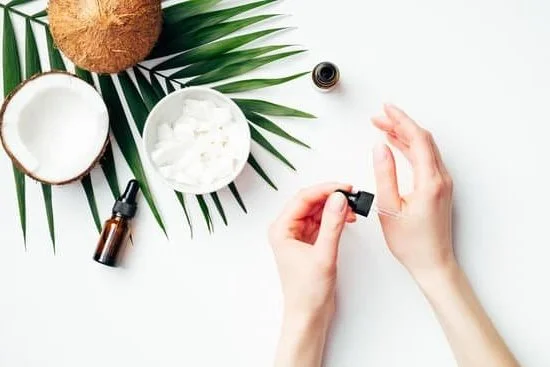Aromatherapy oils are natural extracts derived from plants that are known for their therapeutic properties. These oils have been used for centuries in various cultures around the world to promote physical and emotional well-being. In recent years, they have gained significant popularity for their holistic benefits and are commonly used in self-care practices. If you’ve ever wondered how long aromatherapy oils last, this article will guide you through everything you need to know.
Aromatherapy oils offer a wide range of benefits when incorporated into our daily routines. They can help alleviate stress, improve mood, enhance relaxation, and even provide relief from physical discomforts like headaches or muscle soreness. These oils work by stimulating our olfactory system, which is strongly linked to our emotions and memory.
However, it’s important to note that aromatherapy oils have a shelf life just like any other product. The longevity of these oils depends on various factors such as the quality of the oil, storage conditions, and the type of oil itself. Understanding the shelf life of aromatherapy oils is crucial to ensure their effectiveness and safety.
In this article, we will explore the factors that affect the longevity of these oils and provide you with expert tips on how to extend their lifespan. We will also discuss proper storage techniques and how to check if your aromatherapy oils have expired. Additionally, we will delve into popular aromatherapy oils and their typical shelf lives so you can make informed decisions when purchasing these products.
Whether you’re new to aromatherapy or a seasoned enthusiast looking to maximize the benefits of your oils, this article is here to guide you through the world of aromatherapy oil longevity. So sit back, relax, and let’s dive into the fascinating realm of holistic well-being.
Benefits of Using Aromatherapy Oils
Aromatherapy oils, also known as essential oils, have been used for centuries to promote physical and emotional well-being. These highly concentrated plant extracts are derived from various parts of plants, such as flowers, leaves, bark, and roots, and are known for their therapeutic properties. Here are some of the benefits of using aromatherapy oils:
1. Stress Relief: One of the most popular uses of aromatherapy oils is for stress relief. Certain oils like lavender, chamomile, and bergamot have calming properties that help reduce anxiety and promote relaxation. These oils can be used in diffusers or added to bathwater for a soothing experience.
2. Improved Sleep: Aromatherapy oils can also be beneficial for those struggling with sleep issues. Oils such as lavender and valerian help relax the mind and body, making it easier to fall asleep and improve the quality of sleep. It is recommended to use these oils in a diffuser or apply them topically before bedtime.
3. Enhanced Mood: Different aromatherapy oils have the power to uplift your mood and boost your mental state. Citrusy scents like lemon and orange are known for their invigorating effects, while floral scents like rose and jasmine can promote feelings of happiness and relaxation. Simply inhaling these oils or using them in massage therapy can help improve your overall mood.
4. Pain Relief: Aromatherapy oils can also offer relief from pain caused by headaches, muscle aches, or joint discomfort. Oils like peppermint have analgesic properties that can provide a cooling sensation when applied topically on the affected area.
It’s important to note that while aromatherapy oils offer numerous benefits, they should be used with caution and according to specific guidelines provided by experts or certified aromatherapists. Each oil has its own set of precautions and contraindications, so it’s always best to consult a professional before using them.
Understanding the Shelf Life of Aromatherapy Oils
Aromatherapy oils, also known as essential oils, have gained popularity for their numerous health benefits and therapeutic properties. These oils are derived from various plants and have been used for centuries in traditional medicine practices. However, just like any other product, aromatherapy oils have a shelf life and can go bad over time. Understanding the shelf life of these oils is crucial to ensure their potency and effectiveness.
Definition of Shelf Life
The shelf life refers to the period during which a product remains safe to use and retains its quality. For aromatherapy oils, it represents the time they can be stored without losing their aroma or therapeutic properties. After the expiration date, these oils may become less effective or even harmful if used on skin or inhaled.
Factors That Influence Shelf Life
Several factors influence the longevity of aromatherapy oils. These factors include the method of extraction, type of plant, storage conditions, and quality of the oil. Generally, pure essential oils obtained through steam distillation have a longer shelf life compared to those extracted using solvents or cold-pressing methods.
Moreover, certain plants produce essential oils that naturally last longer than others due to their chemical composition. Citrus oils such as lemon and orange tend to have a shorter shelf life while oils from woods such as cedarwood and sandalwood can last for several years.
Storage conditions play a crucial role in determining how long aromatherapy oils will last. Exposure to heat, sunlight, moisture, or extreme temperature fluctuations can cause these oils to deteriorate quickly. Similarly, using unclean tools when handling essential oils or leaving them open for prolonged periods can also speed up their degradation process.
Safety Measures
It is important always to consider safety when using aromatherapy oils that are past their shelf life. Expired oils may lose their beneficial properties and can cause skin irritations or adverse reactions when used topically or inhaled. To ensure safety, it is recommended to check the expiry dates and discard any oils that have expired.
Understanding the shelf life of aromatherapy oils is crucial to ensure maximum potency and therapeutic benefits. By considering the factors that influence longevity and practicing proper storage techniques, individuals can extend the lifespan of these oils and enjoy their benefits for longer periods.
Factors That Affect the Longevity of Aromatherapy Oils
Aromatherapy oils, also known as essential oils, are highly concentrated plant extracts that are used for their therapeutic properties. These oils have gained popularity in recent years due to their numerous benefits and versatility. They can be used for relaxation, stress relief, pain management, and even skincare. However, it is important to understand that aromatherapy oils do have a shelf life and can expire over time.
The longevity of aromatherapy oils is influenced by several factors. One of the main factors is the quality of the oil itself. High-quality essential oils tend to have a longer shelf life compared to lower quality ones. It is important to purchase essential oils from reputable sources to ensure that you are getting a product with optimal freshness.
Another factor that affects the longevity of aromatherapy oils is exposure to light and heat. Essential oils should be stored in dark glass bottles and kept away from direct sunlight or heat sources. Light and heat can cause the oils to degrade more quickly and lose their potency.
Other factors that can impact the longevity of aromatherapy oils include air exposure and contamination. When essential oils come into contact with air, they may oxidize, which can shorten their shelf life. Additionally, if an oil becomes contaminated with water or impurities, it may spoil more quickly.
To maximize the lifespan of your aromatherapy oils, it is important to store them properly. Keep them in a cool, dark place away from sunlight and heat sources. Make sure the bottle is tightly sealed when not in use to prevent air exposure. Avoid touching the inside of the bottle or using dirty utensils when handling the oil to minimize contamination.
Proper Storage Techniques for Aromatherapy Oils
Aromatherapy oils are highly concentrated plant extracts that have been used for centuries to promote physical and emotional well-being. These oils are derived from various parts of plants, including flowers, leaves, bark, and roots. To ensure the effectiveness and longevity of aromatherapy oils, proper storage techniques should be followed.
One important factor in storing aromatherapy oils is the type of container used. It is recommended to store them in dark glass bottles, such as amber or cobalt blue. Glass containers are preferred over plastic ones as they do not react with the essential oils and prevent any chemical leaching that could occur with plastic bottles.
Another crucial aspect of proper storage is guarding against exposure to light and heat. Light can degrade the quality of essential oils by causing oxidation and breaking down their chemical compounds. Therefore, it is advised to store aromatherapy oils in a cool, dark place away from direct sunlight or strong artificial light sources.
Furthermore, heat can accelerate the deterioration of essential oils. It is important to keep them away from any heat sources such as radiators or stoves. High temperatures can cause the volatile compounds in the oil to evaporate more quickly, leading to a shortened shelf life.
In addition to protecting aromatherapy oils from light and heat, it is crucial to keep them sealed tightly when not in use. Oxygen exposure can also lead to oxidation and degradation of these precious oils. Make sure that the caps or lids on the bottles are securely closed after each use to prevent unnecessary exposure to air.
By following these proper storage techniques for aromatherapy oils, you can help prolong their shelf life and maintain their therapeutic benefits for a longer period of time.
Relevant Data
| Storage Technique | Effect |
|---|---|
| Use dark glass bottles | Prevents light degradation and chemical leaching |
| Avoid exposure to light and heat | Prevents oxidation and evaporation of volatile compounds |
| Seal tightly when not in use | Prevents oxygen exposure and oxidation |
How to Check if Aromatherapy Oils Have Expired
Aromatherapy oils can provide many benefits, but it is important to know if they have expired before using them. Using expired aromatherapy oils may not only diminish their therapeutic properties, but they could also pose potential health risks. Luckily, there are several ways to check if your aromatherapy oils have reached their expiration date.
One simple method to determine if an aromatherapy oil has expired is through the sense of smell. If the oil smells rancid or has a foul odor, it is likely past its prime and should not be used. Aromatherapy oils should generally have a pleasant aroma that is characteristic of the plant from which it was derived.
Another way to check the expiration date of aromatherapy oils is through visual inspection. Over time, essential oils can oxidize and become darker in color. If you notice that your oil has significantly darkened or developed cloudiness, it may be a sign that it has expired and should be discarded.
In addition to smell and appearance, the efficacy of aromatherapy oils can also diminish over time. This means that if you find that the oil no longer produces the desired effects or does not provide relief for certain ailments as it once did, it could be an indication that it has expired.
It is important to note that properly stored and handled aromatherapy oils can have a longer shelf life compared to those exposed to heat, light, or air. By following proper storage techniques and purchasing from reputable sources, you can help ensure that your aromatherapy oils remain fresh for as long as possible.
Table: Common Signs That an Aromatherapy Oil Has Expired
| Signs | Description |
|---|---|
| Strange Odor | Rancid or foul smell instead of a pleasant aroma |
| Change in Color | Darker color or cloudiness compared to its original appearance |
| Diminished Efficacy | Lack of desired effects or relief from ailments that it used to provide |
Extending the Lifespan of Aromatherapy Oils
Using Dark Colored Bottles
One way to extend the lifespan of aromatherapy oils is by using dark colored bottles for storage. Aromatherapy oils are sensitive to light, particularly sunlight, as it can degrade the quality and potency of the oils over time. By using dark colored bottles, such as amber or cobalt blue, you can protect the oils from exposure to light. This helps to preserve their properties and ensure that they last longer.
Avoiding Exposure to Heat
Another important factor in extending the lifespan of aromatherapy oils is avoiding exposure to heat. High temperatures can cause the oils to break down more quickly and lose their effectiveness.
It is important to store your aromatherapy oils in a cool, dry place away from direct sunlight or sources of heat, such as radiators or stoves. Additionally, when using aromatherapy oils during massage or diffusing them into the air, it is recommended to use low heat settings or cool methods of diffusion to minimize any potential damage to their properties.
Practicing Good Hygiene
Practicing good hygiene when using your aromatherapy oils can also help extend their lifespan. When using your oils, make sure your hands are clean and dry before handling the bottles or applying the oil onto your skin. This helps prevent contamination and keeps bacteria or other microorganisms from entering the bottle and potentially degrading the oil over time. Additionally, it is important to properly close and seal the bottles after each use to prevent evaporation or oxidation of the oil.
By following these practices for storing and handling your aromatherapy oils, you can help extend their lifespan and maintain their quality and effectiveness for a longer period of time. Taking proper care of your oils not only ensures that you get maximum benefits from them but also saves you money in replacing expired oils too soon.
Popular Aromatherapy Oils and Their Typical Shelf Lives
Aromatherapy oils come in a wide variety of scents and are derived from various plants, flowers, and herbs. These oils are commonly used for their therapeutic properties and can be incorporated into different wellness practices such as massages, baths, diffusers, or even applied topically.
It is important to note that each aromatherapy oil has its own unique shelf life, which refers to the length of time the oil can maintain its potency and effectiveness. Understanding the typical shelf lives of popular aromatherapy oils can help ensure that you are using them at their optimum quality.
One popular aromatic oil is lavender essential oil. Known for its calming scent, lavender oil can be beneficial for relaxation and promoting sleep. The typical expiration period for lavender essential oil ranges from two to three years when stored properly. Another commonly used aromatherapy oil is peppermint essential oil. With its invigorating scent, peppermint oil is often used for its energizing effects or to alleviate digestive discomforts. When stored correctly, peppermint essential oil can last up to four years.
In addition to lavender and peppermint oils, other popular aromatherapy oils include eucalyptus, tea tree, and lemon. Eucalyptus essential oil is renowned for its respiratory benefits and can last between two to three years. Tea tree essential oil, which is well-known for its antimicrobial properties, typically has a shelf life ranging from two to five years. Lemon essential oil, with its refreshing citrus aroma, usually maintains its effectiveness for about one to two years.
It is important to remember that these estimated shelf lives are based on ideal storage conditions. Factors like temperature fluctuations, exposure to light or oxygen, contamination through improper handling or storage containers can all affect the longevity of aromatherapy oils.
Therefore, it’s crucial to understand how various factors can impact the quality of the oils and take the necessary steps to ensure their preservation. By following proper storage techniques and periodic checks on the quality of the oils, you can extend their shelf life and maximize their therapeutic benefits.
Expert Tips for Maximizing the Longevity of Aromatherapy Oils
In conclusion, maximizing the longevity of aromatherapy oils is essential for getting the most out of their therapeutic benefits. By following the expert tips provided in this article, individuals can ensure that their oils last as long as possible.
First and foremost, proper storage techniques are crucial for maintaining the quality of aromatherapy oils. Keeping them in a cool, dark place away from direct sunlight and heat can help prevent oxidation and degradation. Additionally, using dark glass containers can further protect the oils from UV light exposure.
Regularly checking the expiration dates of aromatherapy oils is also important. While most oils have a shelf life of one to two years, some may last longer or shorter depending on their composition. By being aware of these expiration dates, individuals can use their oils before they lose their potency.
Lastly, extending the lifespan of aromatherapy oils can be achieved by handling them properly. This includes using clean hands and utensils when measuring or dispensing the oil to prevent contamination. It is also recommended to keep the bottles tightly sealed when not in use to minimize exposure to air and moisture.
By implementing these expert tips into your routine, you can ensure that your collection of aromatherapy oils remains fresh and effective for an extended period of time. Remember to always prioritize proper storage and handling techniques to optimize the longevity and benefits of these powerful natural remedies.
Frequently Asked Questions
Does Aromatherapy Oil Expire?
Yes, aromatherapy oil does expire. Like many other natural products, essential oils have a shelf life and will eventually lose their potency and efficacy over time. The expiration date of an essential oil can vary depending on several factors, including the type of oil and how it has been stored.
Generally, most essential oils last for about 2-3 years from the time they are opened, but certain oils such as citrus oils may have a shorter shelf life of around 1-2 years. It’s important to check the label or consult with the manufacturer to determine the specific expiration date of an aromatherapy oil.
How Often Should You Replace Essential Oils?
The frequency of replacing essential oils depends on various factors such as the quality of the oil, how often you use it, and how well you store it. Generally, high-quality essential oils that are properly stored can last for several years before needing replacement. However, lower quality or adulterated oils may deteriorate more quickly.
Additionally, if an essential oil starts to smell rancid or off, it is a clear indication that it has gone bad and should be replaced immediately. To ensure freshness and optimal efficacy, it is recommended to replenish your stock every few years or when there are signs of deterioration.
How Long Do Diffused Essential Oils Last?
The duration for which diffused essential oils last depends on several factors including the type of oil used, diffusion method employed, and dilution ratio. Typically, when using an ultrasonic diffuser or nebulizer that disperses microfine particles into the air, diffused essential oils can last in their aromatic form for about 1-4 hours before dissipating completely.
However, lighter citrus oils tend to evaporate more quickly compared to heavier or resinous oils which can linger in the air for a longer time. It’s important to note that while the aroma may vanish after a few hours, some therapeutic benefits may still persist even though they aren’t perceptible to the nose.

Are you looking for a natural way to improve your health and wellbeing?
If so, aromatherapy may be the answer for you.





